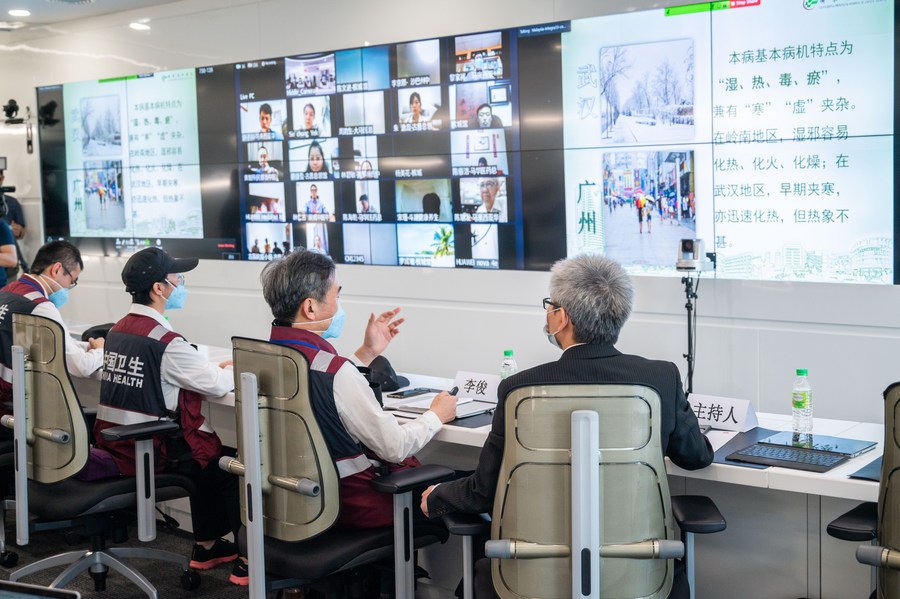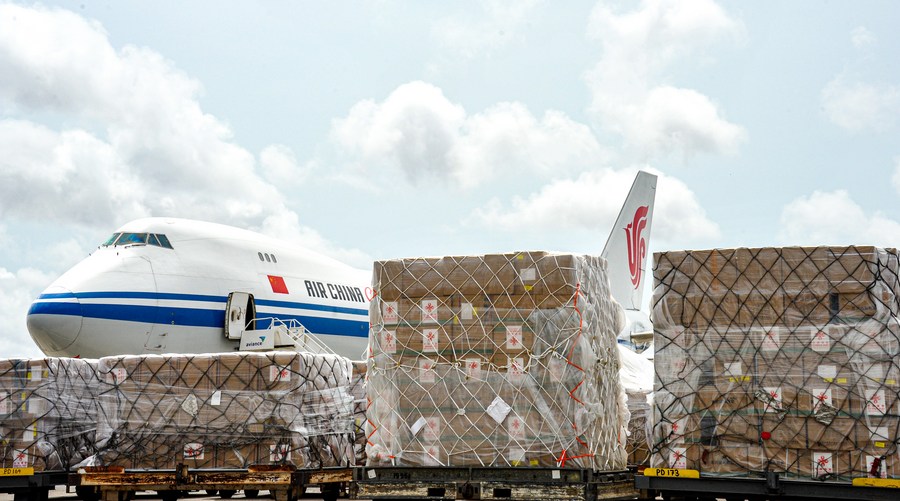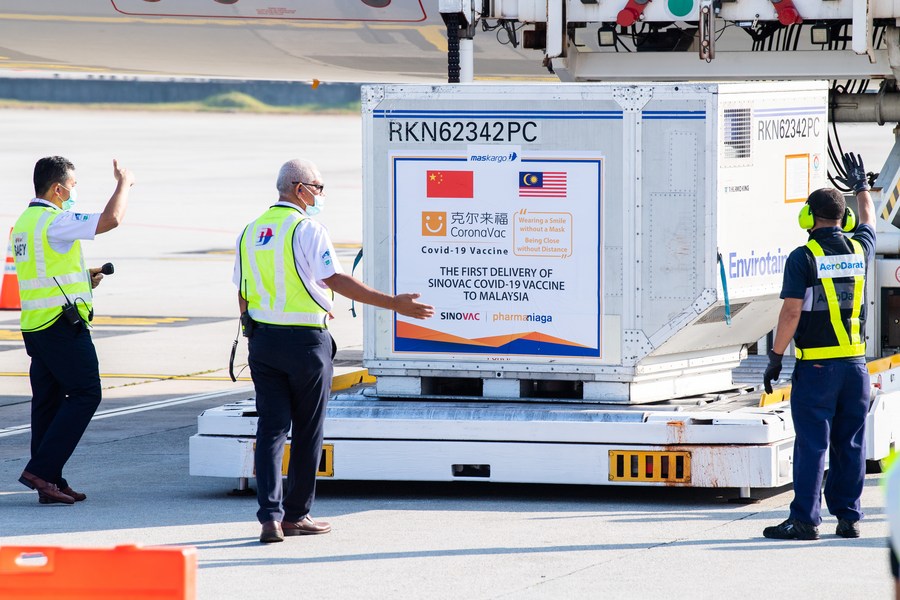Interview: BRI cooperation to spearhead post-pandemic recovery, says Malaysian expert
 0 Comment(s)
0 Comment(s) Print
Print E-mail Xinhua, 04 23, 2021
E-mail Xinhua, 04 23, 2021

Members of the Chinese anti-COVID-19 medical consultant expert team attend a video conference with Malaysia's traditional Chinese medicine (TCM) associations, practitioners and companies on China's experiences in applying TCM in the fight against COVID-19, in Kuala Lumpur, Malaysia, April 22, 2020. (Xinhua/Zhu Wei)
The expert said that the pandemic, for all its disruptions to global trade and economy, has ushered in a wave of cooperation notably among countries along the BRI, which helped each other out in a time of troubles.
KUALA LUMPUR, April 21 (Xinhua) -- The Belt and Road Initiative (BRI) is expected to spearhead the post-pandemic global economic recovery, as participating countries have reinforced their ties in joint response to COVID-19, a Malaysian expert has said.
The response also paved the way for BRI countries to boost cooperation in health and digital economy, while climate change could become a new frontier for joint effort if China continues to lead in tackling the challenge, said Ong Tee Keat, founding chairman of the Center for New Inclusive Asia, a Malaysia-based think tank, in a recent interview with Xinhua.
According to a report on Asian economic outlook and integration progress issued Sunday by the Boao Forum for Asia (BFA) Annual Conference, the BRI showed strong resilience and vitality last year, with relevant projects continuing to advance, cooperation yielding fruitful results, and trade and investment growing despite headwinds.

China's medical supplies for 18 African countries arrive at the Kotoka International Airport in Accra, capital of Ghana, April 6, 2020. (Xinhua/Xu Zheng)
Ong said that the pandemic, for all its disruptions to global trade and economy, has ushered in a wave of cooperation notably among countries along the BRI, which helped each other out in a time of troubles.
"The pandemic has its silver lining in enhancing better camaraderie and connectivity of hearts and minds," he noted.
As one of the BRI countries, China reached out to other pandemic-battered partners by donating personal protective equipment and cooperating in vaccine development, Ong said, adding that China walked the talk of making Chinese vaccine a public good for the international community.
China emerged as the only major economy that swiftly contained the outbreak and recovered from a slump last year, playing a key part in global economic recovery and benefiting other countries via multilateral platform such as the BRI, said Ong.
Meanwhile, the country is pushing forward its 14th Five-Year Plan (2021-2025) and new development paradigm of "dual circulation," which "is expected to provide the BRI countries with vast market potential in the post-COVID-19 recovery," he noted.

The first batch of COVID-19 vaccines made by the Chinese biopharmaceutical company Sinovac Biotech is unloaded upon its arrival at the Kuala Lumpur International Airport in Sepang, Malaysia, Feb. 27, 2021. (Xinhua/Zhu Wei)
The goodwill forged through cooperation during outbreaks have laid the foundation for better public health response in the future, he said, pointing out that such cooperation within and beyond the BRI or the Association of Southeast Asian Nations (ASEAN) serve as a useful template.
In the face of the pandemic, the scope of BRI cooperation has also been expanded in a timely way to build a "Health Silk Road" and a "digital Silk Road," said Ong, noting that digital economy would continue to thrive, considering restrictions to gatherings and travels could remain for a while, Ong said.
China, having had an early start in developing digital economy, is deemed as a leading example that other countries can seek to emulate, according to Ong.

A staff worker sells children's clothes via livestreaming in Zhili Town of Huzhou, east China's Zhejiang Province, Feb. 8, 2021. (Xinhua/Xu Yu)
"The potential that China can unleash in the digital economy is enormous. This is believed to be the next main thrust of a globalized economy facing the protracted impact of the disease," he said.
Ong said that the BRI network is an existing platform ideal for multilateral collaboration in addressing climate change, which is not only a global concern but a challenge increasingly relevant to countries along the BRI, as many of them belong to the developing world.
In this regard, China has abundant experience in mitigating environmental degradation via legislation, afforestation and other measures, providing inspirations for partners in the initiative, he added.


